What is “Lean Language Learning”?
Nowadays we all know what Lean Management is… and why it is so popular … In nutshell, it’s going “straight to the value proposition” No frills, focus on efficiency.
We could say it is a way of maximising efficiency and involving all interested parties in reaching conclusions on where to take measures and which measures to take to focus only on the activities that give added value.
Well in BLP we believe that’s how training and coaching programmes should be, so have started to use the phrase “Lean Language Learning” in our programmes, in the sense that, you are making a big effort in terms of money, time and mental effort to learn English (in our case, for working reasons, but it is also applicable to people studying for exams or just for pleasure, for travelling etc,) so logically you want to get the best value, maximum results in as short a time as possible. You only spend time, money and effort on what’s going to give you the most value.
One client once said to me “We don’t want to learn about farm animals or other people’s hobbies, we want to focus on our workneeds” – in this case it was international health management but it could just as easily have been civil engineering or agriculture.
Lean Language Learning consists of identifying what you really need, one thing at a time, and focusing just on that, not studying a whole course or course book for the sake of it, when maybe at least 50% won’t be relevant to you or your objectives, either as you already know it or it is irrelevant subject matter.
Lean Language Learning may seem more expensive per hour, but in fact it can be twice as effective, therefore it is better value for money in the long run (studying a whole course book can take up to 2 academic years at 3 hours/week x9 months …. = 216 hours!!! (And only some of it is useful)
So we recommend thinking hard, and maybe discussing with your trainer the different areas that will help you reach your objectives much more quickly. This may be areas of grammar, vocabulary, pronunciation, expressions, listening skills etc… To feel more comfortable and confident doing their work in English, Some people prefer to focus on fluency or business skills, such as leading an international virtual team or perfecting sales presentations.
 Case scenario #1
Case scenario #1
This is Pepe and he works in construction. He has just been promoted to Purchasing Manager
- Identifying your target situations: Pepe will be using English mainly to talk with suppliers for building materials and tools
- Identifying the language required: Pepe wants to study the names (and pronunciation) of the different tools and materials used in building in order to be able to discuss budgets and prices and also practice negotiating delivery times and payment terms.
- Profile: He is shy but studious, so prefers to read and prepare model dialogues before practicing or doing role plays
- Level: His level test shows that he has a low intermediate level, he’s reasonably fluent and not shy. Medium to long term he really needs an upper intermediate level to be able to do his job confidently and competently.
In this case we could easily begin by focusing firstly exclusively on the materials and tools until his listening and pronunciation are competent – let’s say 6- 8 hours
Then we would move onto numbers for prices, budgets and dates – let’s say 4 hours
We have detected he has problems with prepositions and basic tenses, so we would do a review of these areas so that he can speak more accurately – this would require another 6-8 hours.
Then we would move onto simple conditional sentences – maybe 6 hours
Then we could start practicing negotiations with practice dialogues and role plays, let’s say 6 – 8 hours
In this scenario, maybe in 28 – 34 hours, Pepe would be much better prepared to carry out his work than now.
He could then work gradually, over a few more months, on increasing his general level and practicing more in depth, always focusing on his weaker areas first.
Case Scenario # 2
Many people think that you can’t work on “specialised” English until you have at least an upper intermediate level but this lean focus is possible at any level.
It can also be more linguistically focussed and not work focussed:
 This is Maribel and she loves studying English. She has an intermediate qualification, but she has difficulties with listening and fails many of the practice exercises: She loves listening to music and especially loves RAP
This is Maribel and she loves studying English. She has an intermediate qualification, but she has difficulties with listening and fails many of the practice exercises: She loves listening to music and especially loves RAP
Many people think that they will improve their listening by listening “practice” ….listening to music, tv shows, films, ted talks etc…but while this will work, slowly and over a long period of time, through “passive learning,” it takes a long time, can be quite frustrating, and may never really help her pass exams. Or prepare for business meetings.
In this case we would recommend a more focused and pedagogical approach on skills training (as opposed to content learning, like Pepe):
- Firstly learning about some listening techniques (extensive listening, intensive listening, listening for gist or specific information etc..) Say 6-8 hours
- Then identifying specific pronunciation elements (how words run together, specific sounds, strong and weak sounds etc…) About 8-10 hours
- Finally, practicing by listening specifically for these elements in a systematic and coherent way, starting with songs and rap and then moving onto listening texts and exercises . Minimum 20 hours
Total between 34 – 38 hours to feel real progress
In both case scenarios the students narrow down their needs and follow a focussed systematic approach. As a result, progress is fast, and this also helps keep motivation levels high.
Basically, we believe that Lean Language Learning is a “less is more” approach and is:
- Efficient
- Effective
- Long-lasting
- Motivating and
- Rewarding
– So start by prioritising your needs and focus !

 Case scenario #1
Case scenario #1 This is Maribel and she loves studying English. She has an intermediate qualification, but she has difficulties with listening and fails many of the practice exercises: She loves listening to music and especially loves RAP
This is Maribel and she loves studying English. She has an intermediate qualification, but she has difficulties with listening and fails many of the practice exercises: She loves listening to music and especially loves RAP


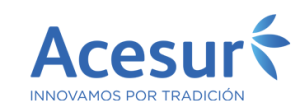





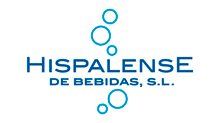






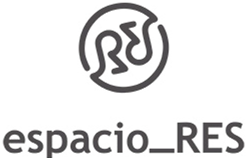

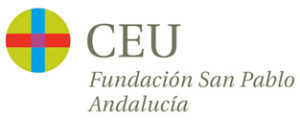

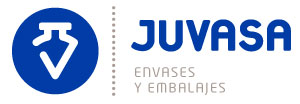



Leave a Comment
Lo siento, debes estar conectado para publicar un comentario.